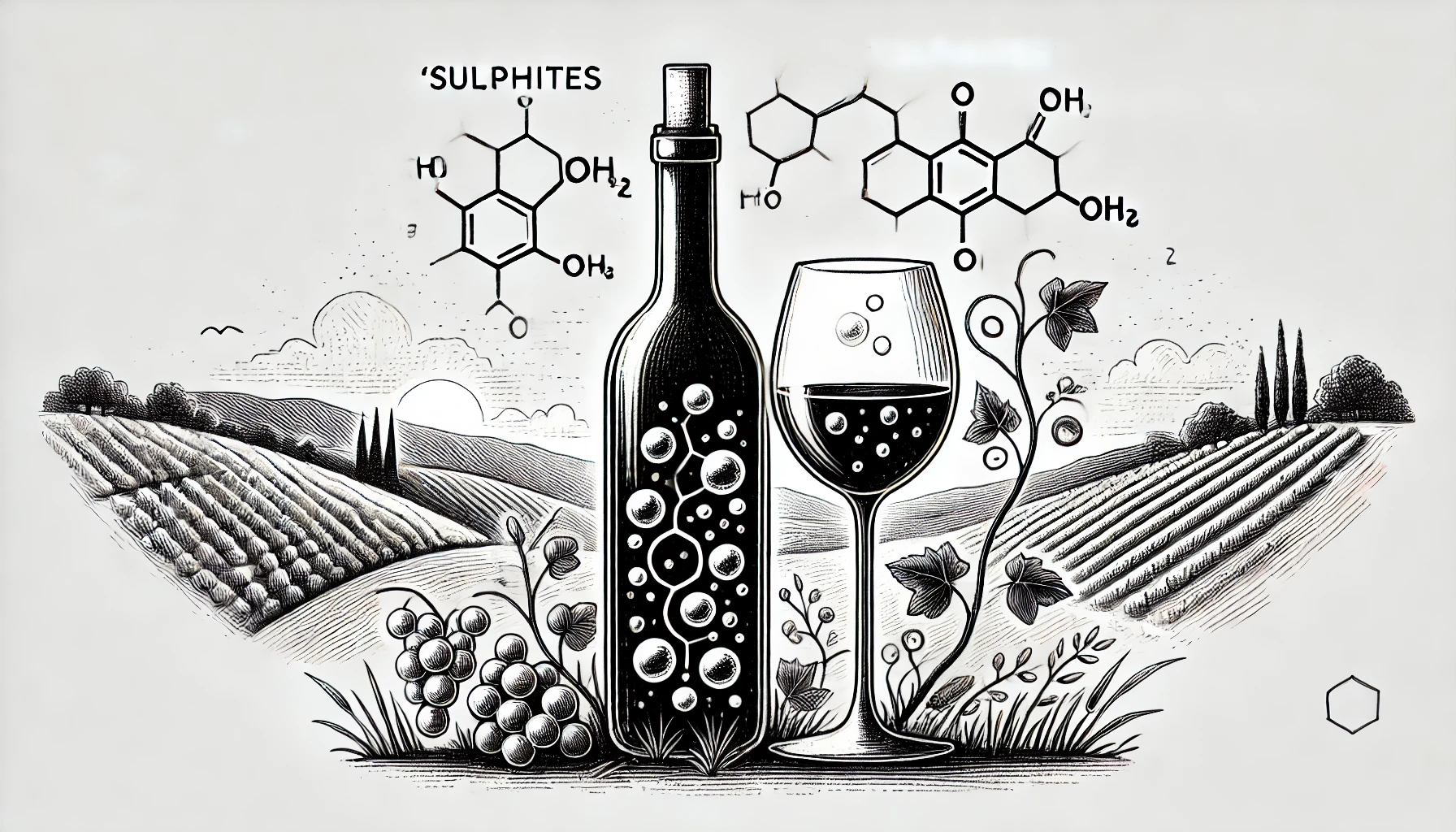
Sulphites, also known as sulfites, are compounds that naturally occur in all wines but are also added by winemakers to preserve the wine and prevent oxidation. The most common form is sulfur dioxide (SO2), which has been used in winemaking for centuries due to its antimicrobial and antioxidant properties.
They play a vital role in winemaking because they help stabilize the wine, preventing spoilage by bacteria and protecting it from oxidation. Without sulphites, wines would spoil much faster, and their flavor and quality would degrade over time. They are particularly important for preserving the color and freshness of white wines.
All wines contain some level of naturally occurring sulphites because yeast, which is used in the fermentation process, produces small amounts of sulfur dioxide. However, most winemakers also add them during the winemaking process, particularly after fermentation and just before bottling, to ensure the wine remains stable and drinkable over time.
Some people believe that sulphites are the cause of wine-related headaches or allergic reactions, but research suggests that sulphites are only a problem for a small percentage of the population, particularly those with asthma. Sulphite levels in wine are strictly regulated in most countries, with the U.S. Food and Drug Administration (FDA) requiring wines containing more than 10 parts per million of sulphites to display a warning label.
Although sulphites are essential for most wines, there has been a growing movement toward natural wines or low-sulphite wines, where winemakers use minimal interventions, including little or no added sulphites. However, these wines tend to have a shorter shelf life and may be more susceptible to spoilage.
Curious about more wine terms and insights? Visit our Wine Wiki section and explore the basic wine terms for expert definitions and tips!